
Auto
18:15, 26-Oct-2017
New energy vehicles in China: Automakers pick up the pace
By Guan Yang
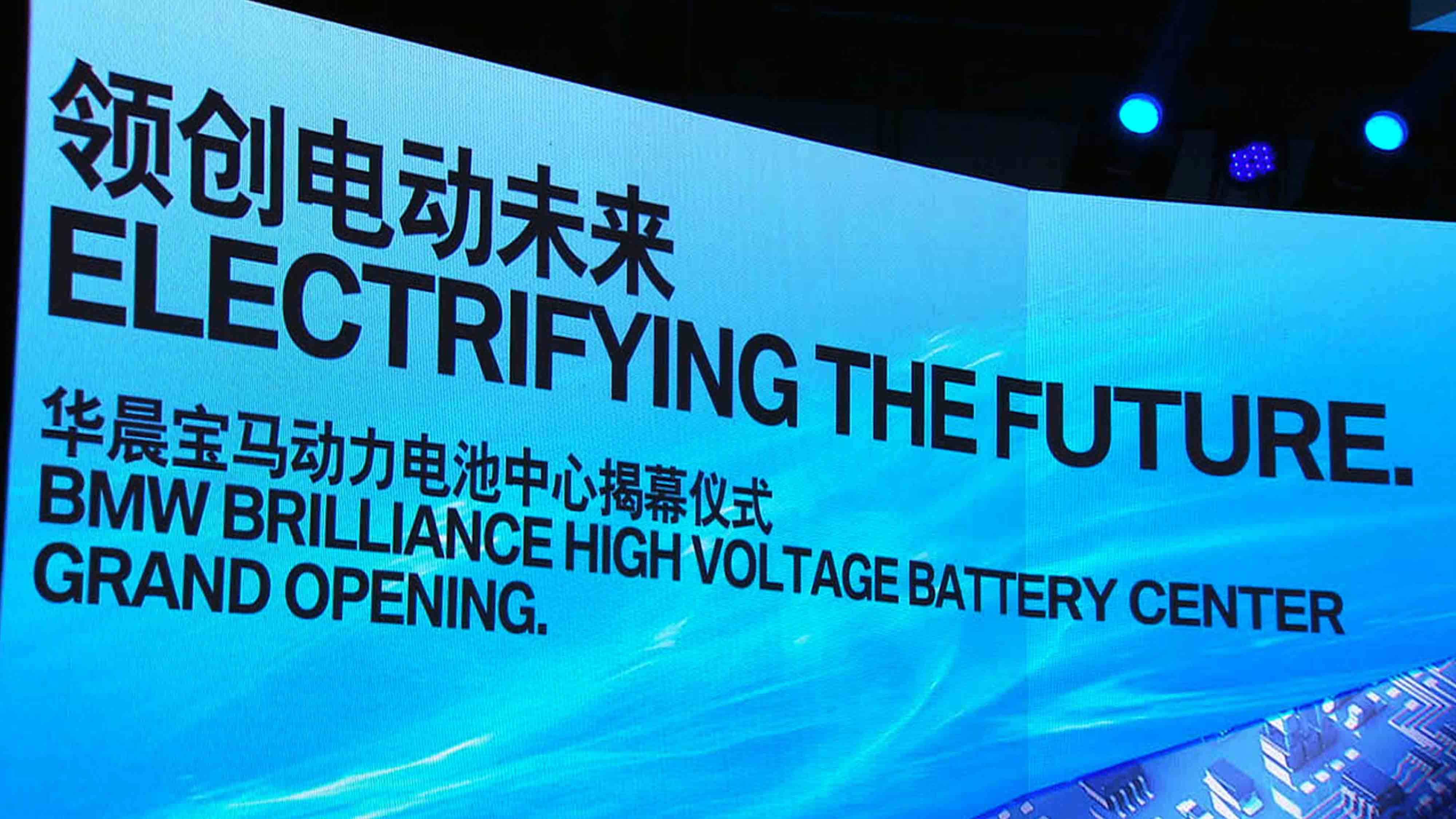
One of the highlights of the 19th CPC National Congress is that the country will see a fundamental improvement in its environment by 2035. Part of achieving that will include a significant increase in the number of new energy vehicles (NEV), providing a huge market for domestic and foreign manufacturers.
Chinese people love their cars. Last year, more than 28 million vehicles were sold nationwide – that's nearly one vehicle bought in every second.
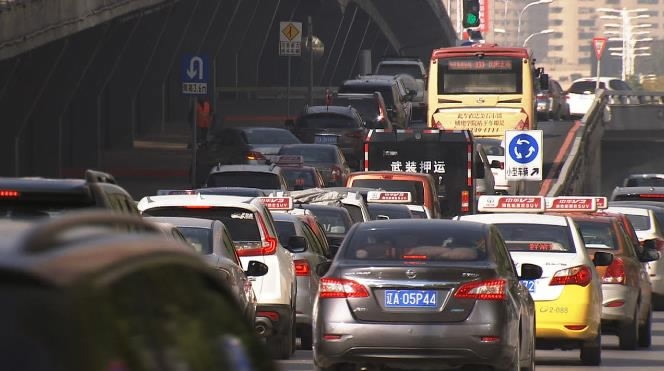
Last year, nearly one vehicle was bought in every second in China. /CGTN Photo
Last year, nearly one vehicle was bought in every second in China. /CGTN Photo
Currently the world's biggest car market, China has set a goal of selling seven million units of NEVs annually by 2025. Considering the size of this market, manufacturers from both home and abroad are eager to grab a piece of the action.
That seven million target is encouraging automakers to pick up the pace of transformation. This week, the joint venture between BMW and China's Brilliance Auto Group has rolled out a new battery plant.
Going green is on the top of their mind.
“Ninety-eight percent of the batteries we produce can be recycled according to the safety standards and environmental protection measures here in China,” said Dr. Stefan Kasperowski, the director of the new battery center.
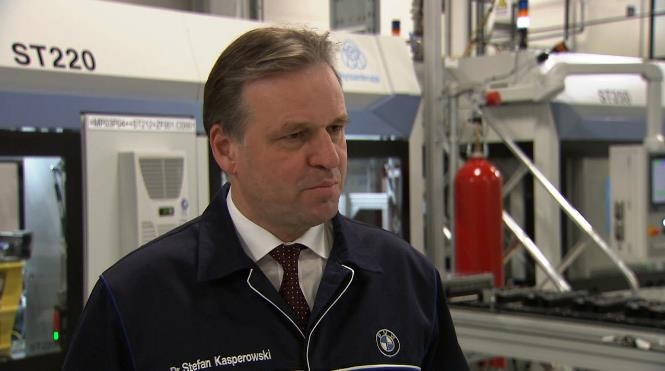
The plant director, Dr. Stefan Kasperowski, told CGTN that going green is on the top of their mind.
The plant director, Dr. Stefan Kasperowski, told CGTN that going green is on the top of their mind.
However, some new energy vehicle companies have sucked up government subsidies without producing any viable vehicles. This cannot continue, as the Chinese government has cut subsidies on automotive sales by 20 percent in January and says it will scrap them altogether by 2020.
To find out how significant it is to have a more regulated environment for NEV industry to grow further, CGTN spoke with Dr. Johann Wieland, the CEO of BBA, the joint venture between the auto giant BMW and Shenyang's Brilliance Auto Group. Wieland thinks the development of NEV market in China is not just market-driven, but also regulatory-driven.
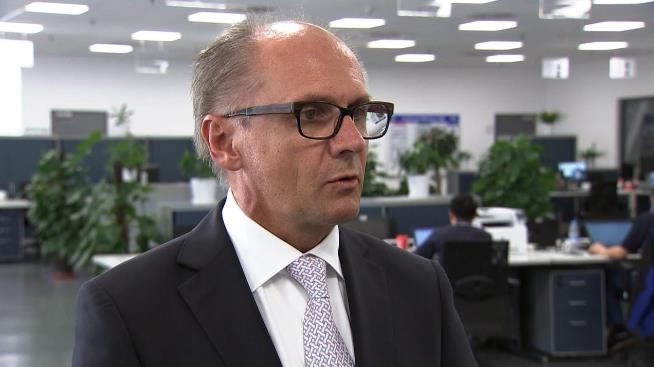
The CEO of BMW Brilliance Auto Group Dr. Johann Wieland thinks the development of NEV market in China is not just market-driven, but also regulatory-driven. /CGTN Photo
The CEO of BMW Brilliance Auto Group Dr. Johann Wieland thinks the development of NEV market in China is not just market-driven, but also regulatory-driven. /CGTN Photo
The German auto giant wants to integrate the plant into its existing international production network, and there is no other market like in China where its NEV sales overtook sales in the US significantly last year.
Wieland also told CGTN that they want to contribute to the Chinese NEV market with the state-of-the-art technologies and the new high-voltage battery center is more than just the assembly.
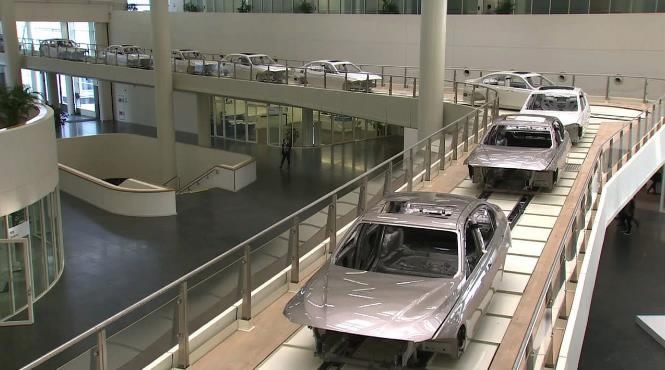
There is no other market like in China where its new energy vehicle sales overtook that of the US significantly last year. /CGTN Photo
There is no other market like in China where its new energy vehicle sales overtook that of the US significantly last year. /CGTN Photo
As the Chinese authorities are pushing NEVs as part of the "Made in China 2025" national plan, and more cutting-edge foreign technologies are being absorbed by domestic firms, the target of seven million NEV annual sales by 2025 is there for the taking.

SITEMAP
Copyright © 2018 CGTN. Beijing ICP prepared NO.16065310-3
Copyright © 2018 CGTN. Beijing ICP prepared NO.16065310-3